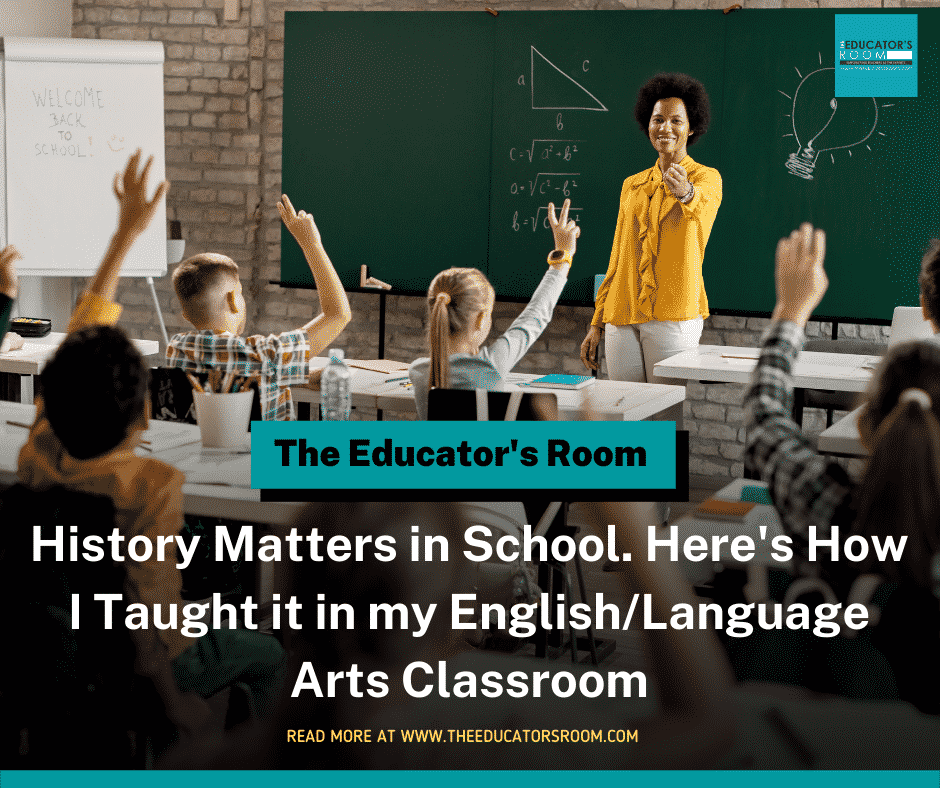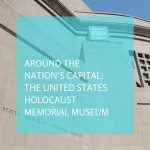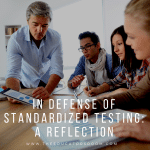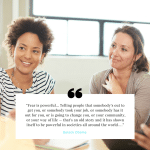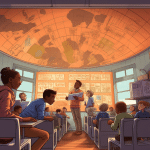Have you signed up for The Educator’s Room Daily Newsletter? Click here and support independent journalism!
Early in my teaching career, I attended a challenging and eye-opening conference on Holocaust education hosted by the United States Holocaust Memorial Museum. I had taught Holocaust literature since the beginning of my career, anchoring most of my Holocaust units in Elie Weisel’s memoir, Night. Spending several days with the experts at the museum was one of the best professional development experiences of my young career; I learned a great deal from the presenters and my fellow educators.
But I learned one very surprising fact about my fellow English teachers who attended: many of them were afraid to teach history. As a history and English major in college, I had always been comfortable with the marriage of English and history. In fact, I saw them as naturally entwined. Over the years I’ve had students complain that they learn as much history in my classes as they learn about English, a fact that I’ve never apologized for.
That is because I believe that to understand the how and the why of reading and writing, one must also show a passable understanding of the history behind that how and why. I’ve never regretted my bachelor’s degree in history because it has consistently made me a better English teacher.
Teaching Animal Farm gave me an excuse to use my undergraduate Russian History class. Teaching Night gave me the opportunity to show my pictures from my day trip to Dachau when I was a junior in college. Teaching Grapes of Wrath gave me the chance to lecture about the Great Depression and the collapse of the world that Fitzgerald created in The Great Gatsby. Teaching The Kite Runner allowed me to expose them to the complexities of a region of the world that had been a vague part of their consciousness for nearly their entire lives.
History has always been a part of my reading and writing instructions because I believe that history matters. I believe that history is infused into our everyday lives. Knowing our past helps us inform our present and effectively prepare for our future.
And nothing has made that fact clearer than watching the responses of my fellow Americans to the events unfolding in Ukraine over the last couple of weeks, or even, the last two years.
I am a Xennial. The Cold War was a fact of my childhood. I remember being told of the evils of the USSR when I was in elementary school. I remember there being an East and a West Germany. I remember when the Berlin Wall came down and my excited grandmother booked a trip to Europe so that she and my grandfather could visit Berlin and see a united Germany in person. My parents still have their souvenir piece of the Wall sitting on their bookshelves.
Watching The Americans year later, as an adult, felt like a guilty pleasure as I cheered on the success of fictional communist spies who were trying to take down the American government. It presented a very different understanding of what was happening in the US and the world while I was enjoying a relatively peaceful childhood safely running up and down our block in Detroit, Michigan.
I’m also an English teacher who has a significant amount of understanding of the troubling history between Ukraine and Russia by nature of my own lesson planning. For years I assigned genocide research projects as the capstone to our study of Night. Students worked individually to research an assigned genocide and then worked with a group to present their findings to their classmates.
Holomodor, the two-year starvation and genocide of millions of Ukrainians as Stalin’s retaliation for resistance, was a regular part of the genocide rotation. I got a yearly reminder of just one of many instances of the Russian government’s oppression of Ukrainian citizens, and as a student of history, I understood that this one event just scratched the surface. What I had learned about Ukrainian history over the years as both a student and as a teacher helped to inform my personal reactions to conflicts between the two countries over the last decade.
History education matters. Students need the strong literacy skills taught in their language arts classes. They need the critical thinking skills taught in their mathematics classes. They need a strong understanding of the scientific method as taught in their science classes. But they also need history, because their understanding of history helps to tie all of the other pieces together, making them stronger citizens more prepared to face the world once they graduate from high school.
As educators, we need to fight for the right to teach history as the beautifully complex discipline that it is and make it a regular part of our school day. If our students understood that our number system was based on Arabic numerals, they might start to see western Asia as a fully developed region with an ancient history instead of a nondescript blob of countries with governments bent on destroying us.
If our students were taught the history behind the constantly changing science of the 1918 flu pandemic, they might be able to see the comparisons to the ways in which science and society responded to COVID-19 and look for a new normal that will improve their lives and the lives of their fellow citizens. If they understood the history behind some of the greatest works written in each generation, they might be able to see the universality of the human experience and be inspired to respond to adversity with empathy and courage.
Maybe what we really need in 21st-century education is to finally seek an interdisciplinary approach that teaches our students how every facet of their education feeds into the others. Maybe we need to all acknowledge a foundation that promotes literacy, critical thinking, and the scientific method. Yes, American education is facing some significant challenges right now, including legislative challenges to the very notion that our students should not be taught the very history they need to know to better understand their world. But we can’t give up trying. That is how we prepare our students to be global citizens capable of facing whatever challenges this century will continue to throw at them.
